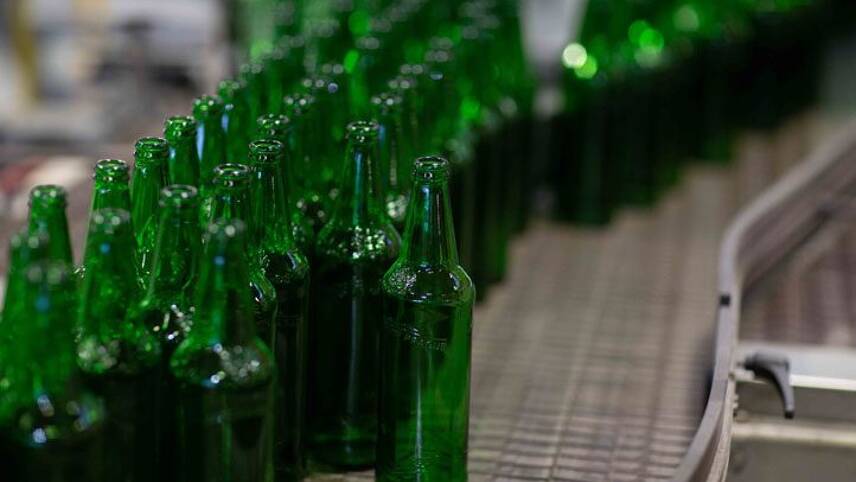Register for free and continue reading
Join our growing army of changemakers and get unlimited access to our premium content

In 2019
Molson Coors, which owns brands such as Carling and Coors Light, is introducing the low-carbon bottles across the UK.
The company has worked with its bottling partner Encirc, which produces around two million glass bottles for the Staropramen brand alone, to develop the bottles.
Encirc manufacturers the bottles using up to 100% recycled or waste glass – called cullet. The process had previously used 75% recycled or waste content. Production is also powered by renewable energy and sustainable biofuels which has helped deliver a reduced carbon footprint for each bottle of up to 90%.
The rollout is commencing following a trial that forms part of a project undertaken by Encirc and the Glass Futures industry research organisation. The trial falls under the Department for Business, Energy and Industrial Strategy’s (BEIS) Energy Innovation Programme.
Molson Coors’ operations director Fraser Thomson said: “Sustainable packaging solutions form a core part of Our Imprint sustainability goals and our global aim to reduce carbon emissions from our direct operations by 50% by 2025.
“This trial is a major step for us in reducing the carbon footprint of our much-loved products, and we look forward to continuing to explore how we can implement this across our wider portfolio on a larger scale in the future.”
In 2019, the brewer confirmed that efforts to halve its direct (Scope 1) and power-related (Scope 2) greenhouse gas (GHG) emissions, against a 2016 baseline, by 2025, had been approved by the Science Based Targets initiative (SBTi).
Given that around 37% of Molson Coors’ absolute carbon footprint is accounted for by packaging – largely across the areas of raw material sourcing, manufacturing and transport – the company has also committed to reducing the carbon emissions from its packaging portfolio by 26%, also by 2025 and against a 2016 baseline.
The company is also a corporate signatory to the US version of the Ellen MacArthur Foundation’s Plastics Pact, which aims to create a fully circular economy for plastics. Launched last year, the initiative binds signatories to achieve four key commitments by 2025: eliminating all single-use plastics packaging that is problematic or unnecessary; ensuring that all plastic packaging is reusable, recyclable or compostable; ensuring that 50% of plastic packaging is effectively recycled or composted and reaching 30% recycled or responsibly sourced, bio-based content in packaging.
As for the Encirc, the bottle manufacturer has worked with the likes of Carlsberg to reduce the carbon impact of their bottles.
The manufacturer is also part of Net Zero North West – a group of businesses backing a project to develop a “cluster plan” to prepare the North West and North East Wales to remove more than 40 million tonnes of carbon from the atmosphere every year and creating thousands of new jobs.
Matt Mace


To say "reduced carbon footprint for each bottle of up to 90%" with no substantiation is just greenwash. What are the emissions per bottles, how do they compare to previous emissions, and to what extent are they dependent on buying "green" electricity from the grid (which without proper additionality, simply makes everyone else’s electricity a little browner). And how do the emissions from the bottle compare to those from brewing and transportation?